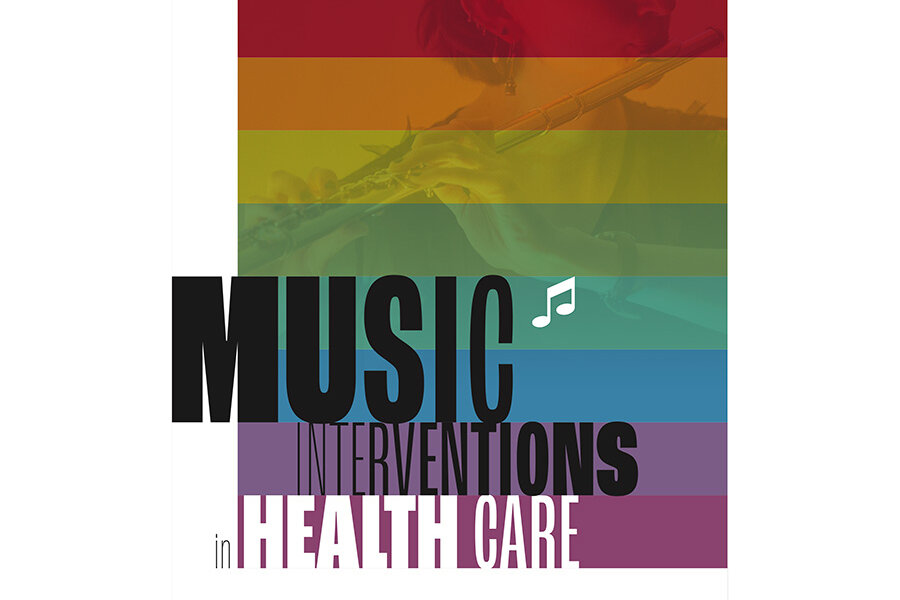Research shows that playing music also contributes to our overall health and wellbeing and helps our thinking and planning skills. In this popular science article, we will first talk about how various parts of the brain are engaged to make music playing possible. We will also discuss benefits of music …
Year: 2022
Danish study on music and sleep: here are the best songs to fall asleep to
The sounds we use to drift off "display a large variation including music characterised by high energy and tempo," say researchers at a Danish university. Researchers from Aarhus University analysed over 200,000 songs on Spotify from nearly a thousand playlists associated with helping users to get to sleep. Alongside the expected types …
In focus: The Music in Human and Social Development Research Group at the University of Edinburgh
The Music in Human and Social Development Research Group (previously the IMHSD*) brings together researchers, theorists and practitioners from across multiple disciplines including music, psychology, sociology, medicine, informatics, physics, education, linguistics and neuroscience to explore the complex and powerful role of music in human experience. The group's research has recently …
PhD position and Post Doc positions at the Max Planck Institute for Empirical Aesthetics
The Max Planck Institute for Empirical Aesthetics in Frankfurt am Main, Germany, investigates the attentional, cognitive, and affective mechanisms of aesthetic perception and evaluation. The Department of Cognitive Neuropsychology invites applications for a PhD position fixed term (36 months), salary scale 13 TVöD 65% Headed by Prof. Dr. Fredrik Ullén, the Department of Cognitive …
Fredrik Ullén awarded the KI Culture Prize 2022
Congratulations to Fredrik Ullén who was awarded the KI Culture Prize during KI Culture Day 19th October. Motivation for the prize Fredrik Ullén is Director at the Max Planck Institute for Empirical Aesthetics in Frankfurt, Professor of Cognitive Neuroscience at Karolinska Institutet, and also a concert pianist. His major research interests are …
In focus: Fredrik Ullén at the Max Planck Institute for Empirical Aesthetics
The Max Planck Institute for Empirical Aesthetics is in many ways a unique research institute. A fundamental principal is that the institute should be a creative and interdisciplinary environment where empirical researchers within fields such as neuroscience, psychology and behavioral genetics interact with academics with a relevant background in the …
Arts and Public Health — Daisy Fancourt video interview
Daisy Fancourt on the effect arts have on our well-being, the correlation between reading fiction and health behavior and how arts can treat chronic pain and mental health problems like depression and dementia. Her studies are based on empirical data from large scale national public data (so called cohort studies), …
Review article: music perception, action, emotion and learning all rest on our fundamental capacity for prediction
Music is ubiquitous across human cultures - as a source of affective and pleasurable experience, moving us both physically and emotionally - and learning to play music shapes both brain structure and brain function. Music processing in the brain - namely, the perception of melody, harmony and rhythm - has …
Interview with Internationally renowned soprano Renee Fleming : How does music affect the mind?
Internationally renowned soprano and Grammy Award winner Renee Fleming is interviewed in The Advocate prior to her presentation "Music and the Mind: Exploring the Intersection of Music, Health and Neuroscience" at Pennington Biomedical Center on Tuesday, May 10. Renee thinks of the human body as an orchestra - made up …
New study about the individual differences in ordinary aesthetic experience
Aesthetic experience seems both regular and idiosyncratic. On one hand, there are powerful regularities in what we tend to find attractive versus unattractive (e.g., beaches versus mud puddles). On the other hand, our tastes also vary dramatically from person to person: what one of us finds beautiful, another might find …
In focus: McMaster Institute for Music & the Mind
The McMaster Institute for Music and the Mind (MIMM) is an interdisciplinary group of researchers including psychologists, neuroscientists, music theorists, musicians, dancers, media artists, mathematicians, kinesiologists, health scientists, and engineers. At the institute, scientists, researchers, and musicians study questions about the physical structure, evolution, neural processing, performance, and perception of music, …
Bilinguals utilize inhibitory control and enhanced subcortical auditory processing in everyday listening situations
There is evidence to suggest that bilingual individuals have enhanced auditory processing and inhibitory control, and this study in Frontiers in Neuroscience by Nina Kraus et al looks at how these cognitive and sensory enhancements are used during real-world listening, comparing the responses of both bilingual and monolingual individuals. During …
Video from lecture with Yulia Kovas February 4th: “Oedipus Rex in the Genomic Era”
Speaker: Yulia Kovas, Goldsmiths, London University Title: Oedipus Rex in the Genomic Era Watch the video online here Abstract In this seminar we will take a journey into the Genomic Era, taking Sophocles as a guide. We will explore the rapid genetic advances and ever expanding insights into the human genome. We will explore what …

















